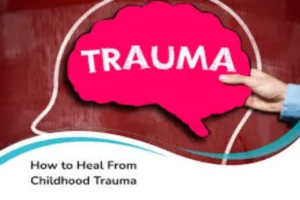Ambien Withdrawal Symptoms, Timeline & Detox Treatment

Imagine lying awake at night, staring at the ceiling, after years of relying on a pill to drift off. You thought stopping Ambien would bring back natural sleep, but instead, anxiety hits hard and your body shakes. This is the hidden side of quitting zolpidem, a popular sleep aid that can lead to tough withdrawal.
Ambien, or zolpidem, helps short-term with insomnia by calming the brain. Many folks take it for weeks or months, not knowing it builds dependency fast. This guide covers Ambien withdrawal symptoms, the timeline you might face, and safe detox treatment options. You’ll learn how to spot risks and get professional help to ease the process.
Understanding Ambien and Its Addictive Potential
What Is Ambien and How Does It Work?
Ambien treats insomnia by acting as a sedative-hypnotic drug. It boosts GABA, a chemical in your brain that slows down activity and promotes sleep. Doctors often prescribe it for just a few weeks, in forms like pills or sprays, with doses from 5 to 10 mg.
The FDA warns against long-term use because it can mess with memory and increase fall risks. About 10 million Americans get prescriptions each year, per CDC data. Stick to short bursts to avoid building tolerance.
Risks of Long-Term Ambien Use and Dependency
Over time, your body gets used to Ambien, so you need more to feel the same effect. This tolerance raises the chance of addiction, much like with similar drugs. Studies show up to 20% of long-term users develop dependence.
Track your sleep habits to spot early signs, like needing the pill every night. Good sleep hygiene, such as dim lights before bed, helps cut reliance. Medical experts agree these meds hook users quick if not watched.
Who Is Most at Risk for Ambien Withdrawal?
People with past drug or alcohol issues face higher odds of rough withdrawal. Older adults, over 65, process the drug slower, making symptoms worse. Long-term users, say over six months, also struggle more.
Ask yourself: How long have I taken it? Do I feel panicky without it? Chat with your doctor if yes—they can guide you early.
Common Ambien Withdrawal Symptoms
Physical Withdrawal Symptoms
Quitting Ambien often brings rebound insomnia, where sleep problems return stronger. You might shake, sweat a lot, or feel nauseous. In bad cases, seizures can hit, especially after high doses.
These feel like flu but stem from your brain adjusting without the drug. Drink plenty of water and rest in a cool room to ease mild shakes. Severe pain needs a doctor’s check right away.
Psychological and Emotional Symptoms
Anxiety ramps up fast, sometimes turning into panic attacks. Irritability or depression can make daily life tough. Hallucinations pop up in rare, intense withdrawals.
Spot triggers like stress that worsen moods. Try deep breaths: in for four counts, out for six. This simple trick calms your mind during tough moments.
Duration and Severity Factors
How bad symptoms get depends on your dose, how long you used it, and overall health. High daily amounts lead to sharper peaks. Folks with liver issues see longer effects.
Keep a journal: Note symptoms each day to see patterns. If pain or confusion lasts over a week, call a pro. This helps you know when to push for help.
Ambien Withdrawal Timeline: What to Expect
Acute Withdrawal Phase (First 24-72 Hours)
Symptoms kick in quick after your last dose. Insomnia hits hard, and anxiety builds within hours. By day two, sweats and restlessness peak.
Day one: Mild unease, trouble sleeping.
Day two: Heart races, stomach churns.
Day three: Shakes intensify.
Set up your space with soft blankets and no screens. This makes the early rush less scary.
Peak Withdrawal Phase (Days 3-7)
Here, things get intense—muscle aches join the party, and moods swing wild. Nausea might keep you in bed. Seizure risks stay high without taper.
Walk gently outside if you can; it loosens tight muscles. Watch for fever or vomiting that won’t stop—these signal danger. Stay close to a friend for support.
Post-Acute Withdrawal Syndrome (Week 2 and Beyond)
Lingering fatigue drags on for weeks, with sleep still off. Mood dips or brain fog can last months in some cases. About 15% of users report this phase, per research.
Rebuild habits slowly: Same bedtime each night helps. Avoid naps longer than 20 minutes. Over time, your body resets without the drug.
Safe Detox and Treatment Options for Ambien Withdrawal
Medical Detox: The Safest Approach
Going cold turkey risks big problems, so supervised detox is key. Docs taper your dose over days or weeks to soften the blow. In a clinic, they watch vital signs and give meds like anticonvulsants for seizures.
Expect check-ins, IV fluids if needed, and counseling chats. Pick a place with good reviews and 24-hour staff. This cuts complication odds by 80%, studies suggest.
Therapy and Support for Long-Term Recovery
Cognitive-behavioral therapy, or CBT, rewires sleep thoughts without pills. Join groups like Narcotics Anonymous for shared stories. Counseling digs into why insomnia started.
Search online for local therapists who know sleep issues. Build a plan: List triggers and coping steps. This keeps you on track post-detox.
Home Remedies and Lifestyle Changes
Melatonin might help light sleep, but ask your doc first. Stick to a routine: Bed at 10 PM, up at 7 AM, no matter what. Cut caffeine after noon.
Make your room dark and quiet. Try herbal tea like chamomile before bed. Never quit alone if symptoms scare you—get pro advice.
When to Seek Professional Help and Prevention Strategies
Recognizing When Withdrawal Requires Emergency Care
Rush to the ER for seizures, chest pain, or thoughts of harm. Hallucinations that feel real or can’t-breath anxiety means go now. Suicidal feelings demand instant help.
Call 911 for life threats. SAMHSA’s hotline at 1-800-662-HELP offers 24/7 talk. Don’t wait—these signs show your body needs quick aid.
Preventing Ambien Dependency from the Start
Use Ambien only short-term, like two weeks max. Try CBT or apps for chronic sleep woes instead. Check in with your doc every month.
Natural aids: Warm baths or reading ease into rest. Track pills to avoid extras. This keeps dependency at bay.
Resources for Support and Further Reading
Check NIH’s site on sleep meds for facts. Mayo Clinic pages detail zolpidem risks. Apps like Sleep Cycle track your nights.
Conclusion
Ambien withdrawal brings physical shakes, emotional lows, and a timeline from days to months. Understanding symptoms helps you prepare, but detox under care beats going solo. Key points: Taper slowly, seek therapy, and build drug-free sleep habits.
If insomnia grips you, talk to a doctor today. Take that step toward real rest—you deserve nights without worry. Recovery waits for those who reach out.







